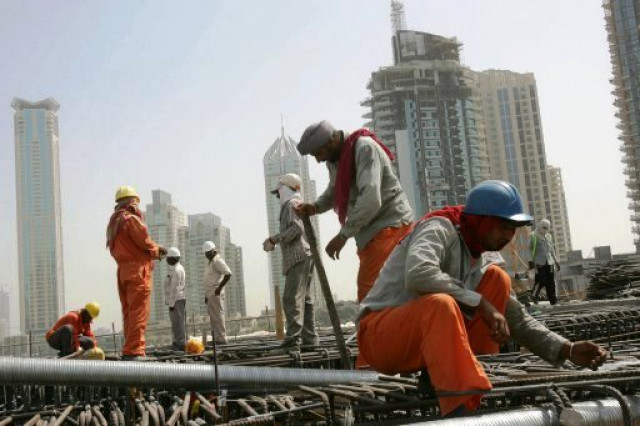Working for workers: Activists call for national labour union, improved labour rights
Three-day PILER conference sheds light on status of workers, unions and laws.

Trade unionists and social activists called for a strong national labour union to improve the dismal state of labour rights in the country and protect trade unions on Friday.
Speaking at the three-day Sindh Labour Conference organised by the Pakistan Institute of Labour Education and Research (Piler) at its office in Gulshan-e-Maymar, the participants shed light on the country's economic policies towards labour and the status of labourers, labour unions and labour laws after the 18th Amendment.
"The government policy of privatisation does not take workers into consideration; instead it only benefits those who consulted with the government before it made its policy decisions," said economist Dr Pervez Tahir, criticising current economic policies and their effects on labour. He said that foreign investments began to decline when privatisation started. "In 1987, when the institutions were run by the government, 26% of the national income came from foreign investments," he claimed. "Now, after privatisation, the share of foreign investment in the economy is only 14%."
Meanwhile, Justice (retd) Rasheed A Rizvi alleged that political parties had failed to play their role in developing trade unions. He said that they had established their wings in existing trade unions, but never attempted to make unions functional in the factories. "The lawyers' movement was successful because everyone put the interests of the judiciary above their own political affiliations," he said. "Until and unless we start prioritising the interests of the people, nothing can be achieved."
He said that after the 18th Amendment, the Sindh government merely adopted the Industrial Relations Act of 2008 with the addition of the word "Sindh" in it. This created problems for workers employed in national organisations, such as Pakistan Railways and banks.
Piler chief executive Karamat Ali spoke about the bleak condition of the country's trade unions, with less than 1% of workers being registered with a union. "The Trade Unions Act 1926 gave all workers the right to form trade unions prior to 1947 but Ayub Khan abolished it and the Trade Disputes Act, replacing them with the Industrial Relations Act 1969," he explained. "This deprived many workers of the right of unionisation, and with later amendments, more and more were excluded from this right." He emphasised the need to struggle for protecting unions and giving the security of at least minimum wages to the workers, calling for the formation of a national union.
"If the workers are united, they will bring a revolution in the country," said singer and activist Jawad Ahmed, expressing his wishes for changing the country's political environment. "I dream of making a political party of peasants and labourers, where they would be the ones ruling Pakistan."
Save the Children provincial advocacy manager Iqbal Detho said that while the number of children working in the worst conditions had gone down from 30 million, last year's International Labour Organisation report indicated that 12 million children were still engaged in such labour.
Meanwhile, trade unionist Shafiq Ghauri called for the simplification of 78 laws dealing with labour, suggesting that they should be condensed into six laws as per the recommendation of a commission headed by Justice Shafiur Rehman.
Published in The Express Tribune, September 28th, 2014.



















COMMENTS
Comments are moderated and generally will be posted if they are on-topic and not abusive.
For more information, please see our Comments FAQ